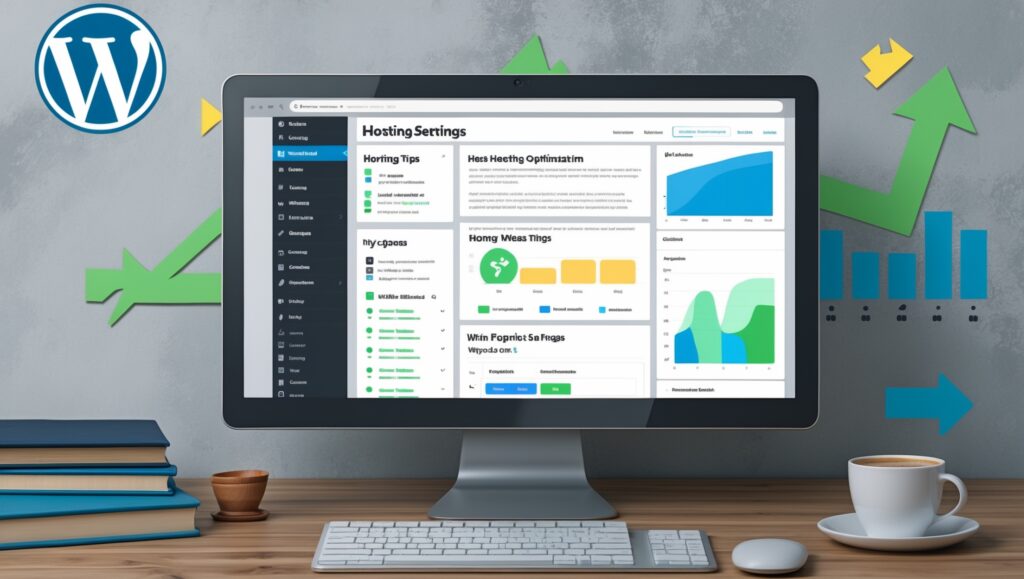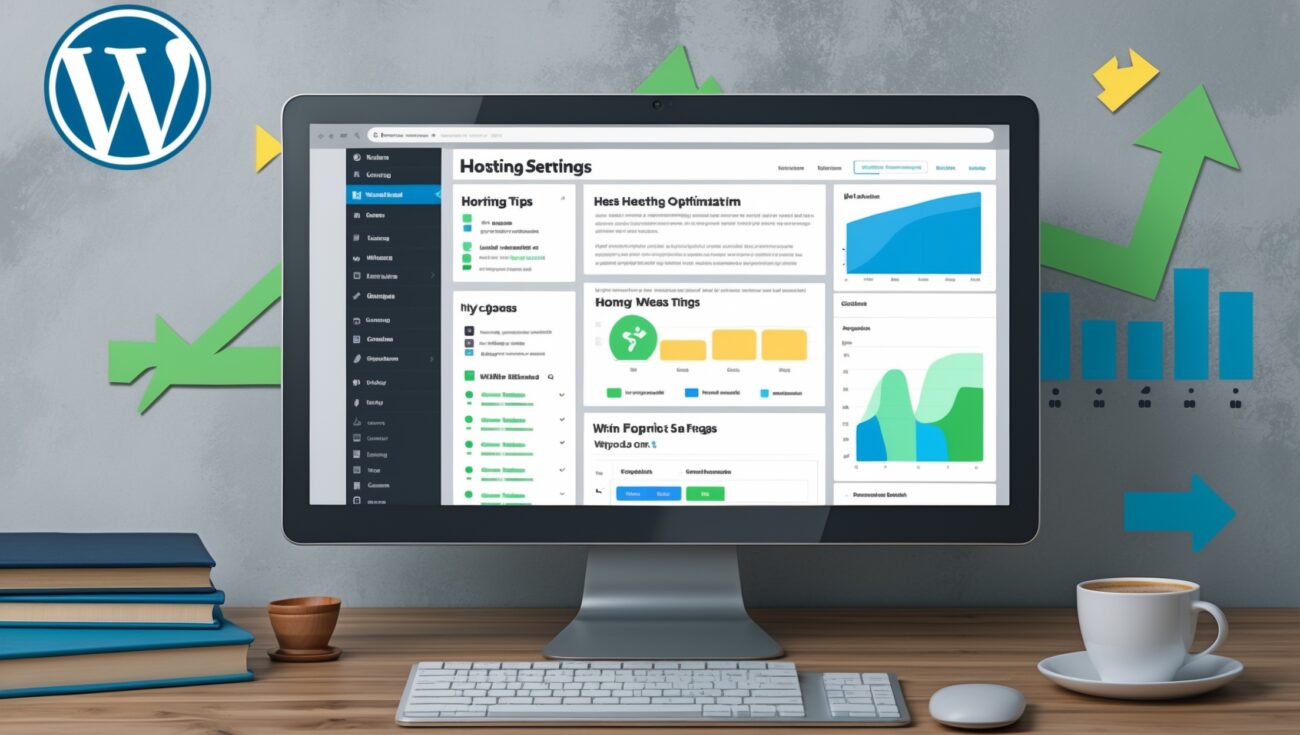Hosting Tips That Improve WordPress Website Performance
If you run a WordPress site, you already know that speed and performance matter. A slow website frustrates visitors, lowers conversions, and even hurts your Google rankings. But here’s the good news: choosing the right hosting and making smart optimizations can completely change how your site performs.
In this guide, we’ll cover the best hosting tips to boost your WordPress website performance, so your visitors stay happy and your business keeps growing.
For reliable hosting that gives you speed, security, and excellent support, I recommend SiteGround Hosting. They’re one of the most trusted hosting providers for WordPress users.

Table of Contents
1. Choose a Hosting Provider Optimized for WordPress
Not all hosting providers are created equal. Some offer basic hosting but don’t optimize their servers for WordPress. When your hosting is designed for WordPress, you get faster load times, fewer errors, and better overall performance.
That’s why many WordPress beginners and professionals prefer SiteGround Hosting—their plans are tailored specifically for WordPress performance.
2. Go for SSD Storage Over HDD
Websites that run on SSD (Solid State Drives) load much faster than those on traditional HDDs. SSDs improve database queries, file loading, and overall site responsiveness. Always choose a hosting provider that offers SSD storage.
3. Use Built-In Caching Tools
Caching reduces the amount of work your server has to do to load your website. Many hosting providers include caching tools that speed up WordPress automatically. For example, SiteGround includes dynamic caching and SuperCacher technology that gives your site a serious performance boost.
4. Enable a Free CDN
A Content Delivery Network (CDN) delivers your site’s content from servers located closer to your visitors. This drastically reduces load times, especially if you have a global audience. Many hosts, including SiteGround, offer a free CDN powered by Cloudflare.
5. Prioritize Hosting With High Uptime
Even the fastest site in the world is useless if it’s offline. Always choose a hosting provider with at least 99.9% uptime. This ensures your website is consistently available to your readers, customers, or clients.
6. Look for Free SSL Certificates
Google favors websites with HTTPS, and your visitors trust you more when they see the padlock symbol in the browser. A good host should include a free SSL certificate. SiteGround gives you Let’s Encrypt SSL for free with every plan.
7. Optimize With PHP Versions
WordPress runs on PHP, and newer versions of PHP are much faster and more secure. A good host will let you use the latest stable PHP version. This small hosting detail can cut your website’s load time significantly.
8. Daily Backups for Safety
Performance isn’t just about speed—it’s also about stability. If something breaks on your WordPress site, backups let you restore your site quickly. The best hosting providers include daily automated backups.
9. Don’t Overcrowd Your Server
Cheap shared hosting often means your site is crammed onto a server with hundreds of others, which slows you down. Pick a provider that manages server resources well, so your website gets the power it needs without interruptions.
10. Scale Hosting as Your Site Grows
A beginner blog doesn’t need the same hosting power as a high-traffic eCommerce site. Look for a provider that makes upgrading easy as your traffic grows. SiteGround offers smooth upgrades from shared hosting to cloud hosting without downtime.
11. Use a Hosting Provider With 24/7 Support
Performance issues can happen at any time. Having a hosting provider with round-the-clock support ensures your site is fixed quickly if something goes wrong. This helps you keep uptime and performance strong.
12. Security Protects Speed
Hacked websites often run slow or go offline completely. Hosting with strong security features—like firewalls, malware scanning, and bot protection—keeps your WordPress site safe and running smoothly.
13. Prioritize Hosts With Staging Tools
If you plan to make changes or add new features to your WordPress site, staging tools allow you to test changes before pushing them live. This ensures your live website stays fast and error-free.
14. Don’t Forget Email Hosting
Some hosting providers slow down servers with poorly managed email systems. If you need professional email hosting, make sure your provider includes it efficiently or offers integrations.
15. Balance Price and Performance
Don’t just go with the cheapest option—investing in quality hosting pays off with faster load times, better rankings, and happier visitors. SiteGround strikes the right balance between affordability and high performance.
Final Thoughts
Your WordPress website deserves the best foundation possible. By choosing the right hosting provider and applying these performance tips, you’ll enjoy faster speeds, higher rankings, and a smoother experience for your visitors.
If you’re ready to upgrade your hosting for speed, security, and WordPress performance, check out SiteGround Hosting here.
Your site’s performance is too important to leave to chance—make hosting work for you today.
Another important tip is to monitor your hosting performance regularly. Even the best hosting provider may occasionally experience slowdowns, so using tools like GTMetrix or Google PageSpeed Insights can help you spot issues early. If you see consistent lags, it may be time to upgrade your plan.
I also discovered that server location makes a difference. If most of your audience is in the United States, hosting your site on U.S.-based servers will make it faster for them. Luckily, SiteGround allows you to choose server locations, giving you more control over speed for your target audience.
Performance isn’t just about what’s on the hosting side—it’s also about how well your hosting integrates with WordPress plugins. SiteGround’s hosting works seamlessly with popular caching and SEO plugins, which helps keep everything optimized without conflicts.
Don’t overlook the power of automatic WordPress updates. A host that takes care of updating WordPress core, plugins, and themes will keep your site secure and running smoothly, without forcing you to manually handle updates every week.
Some hosts overload their servers with too many customers, but SiteGround actually limits how many accounts are placed on each server. This means your site doesn’t compete for resources as much, which translates into better uptime and faster loading speeds.
It’s also smart to think long term. If you plan on growing your blog into a business, you need hosting that can scale without downtime. SiteGround makes scaling smooth, so you don’t risk losing visitors or sales during traffic spikes.
Finally, I’ll say this: your hosting isn’t just a “technical detail.” It’s the foundation of your website’s success. By choosing a host like SiteGround that prioritizes speed, security, and reliability, you set yourself up for better SEO rankings, more traffic, and a stronger online presence.

